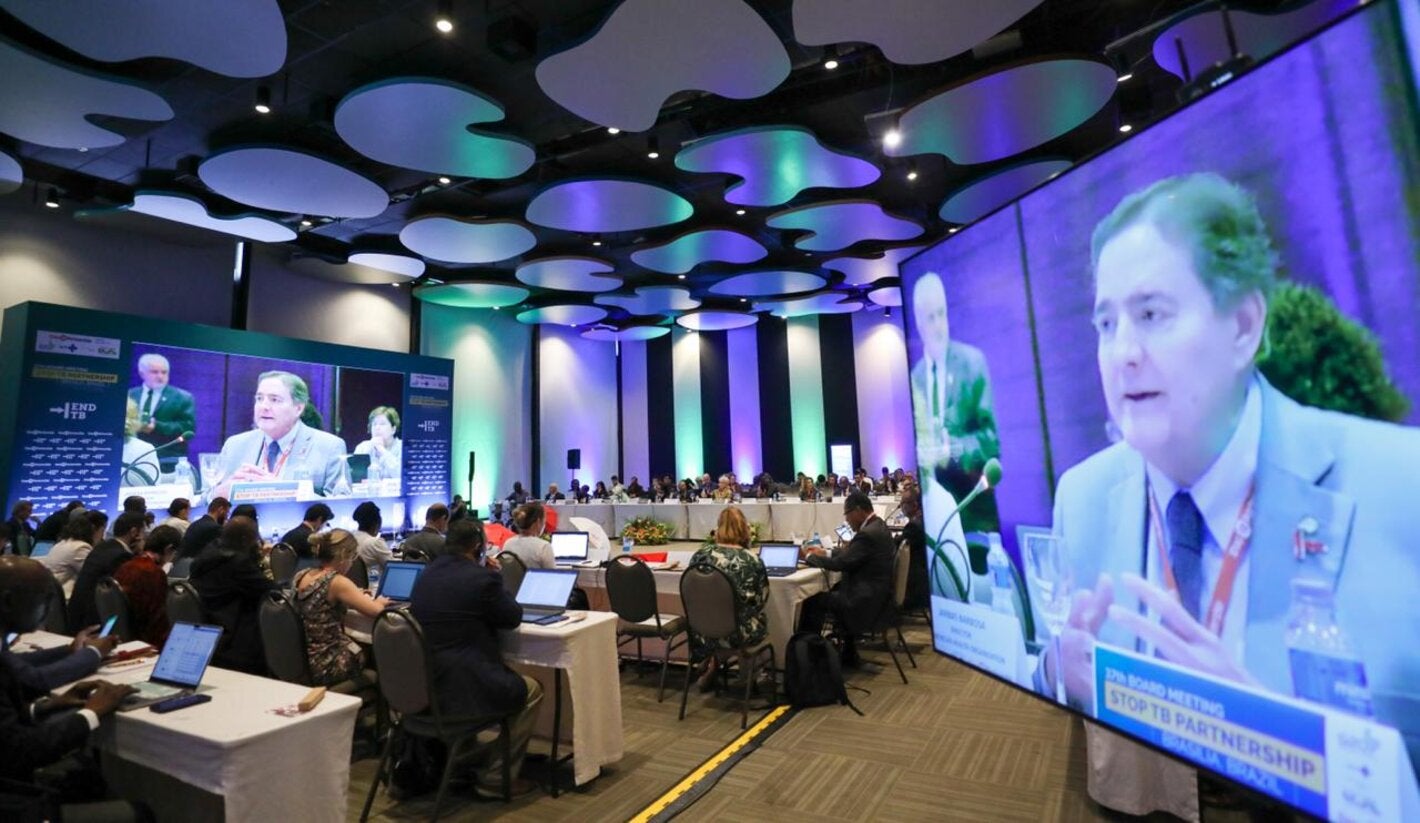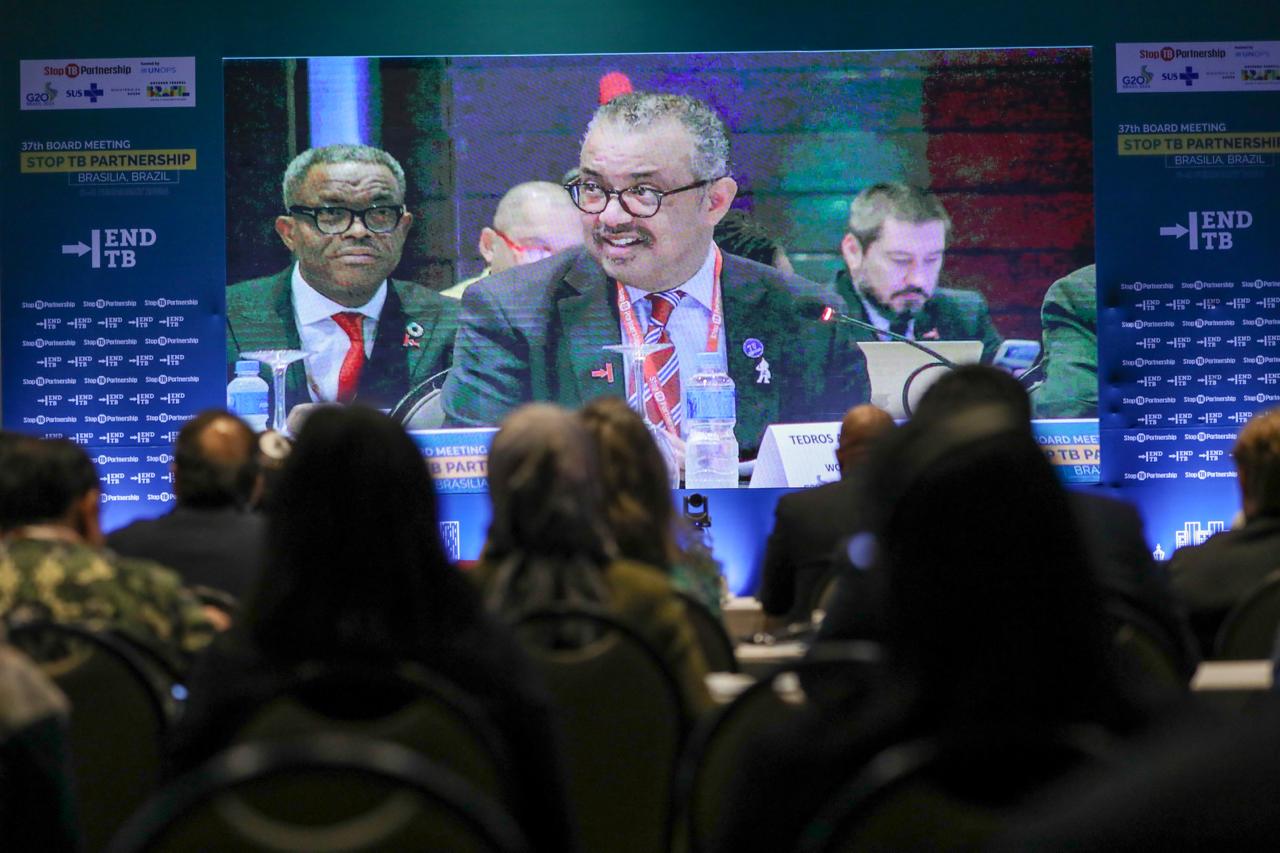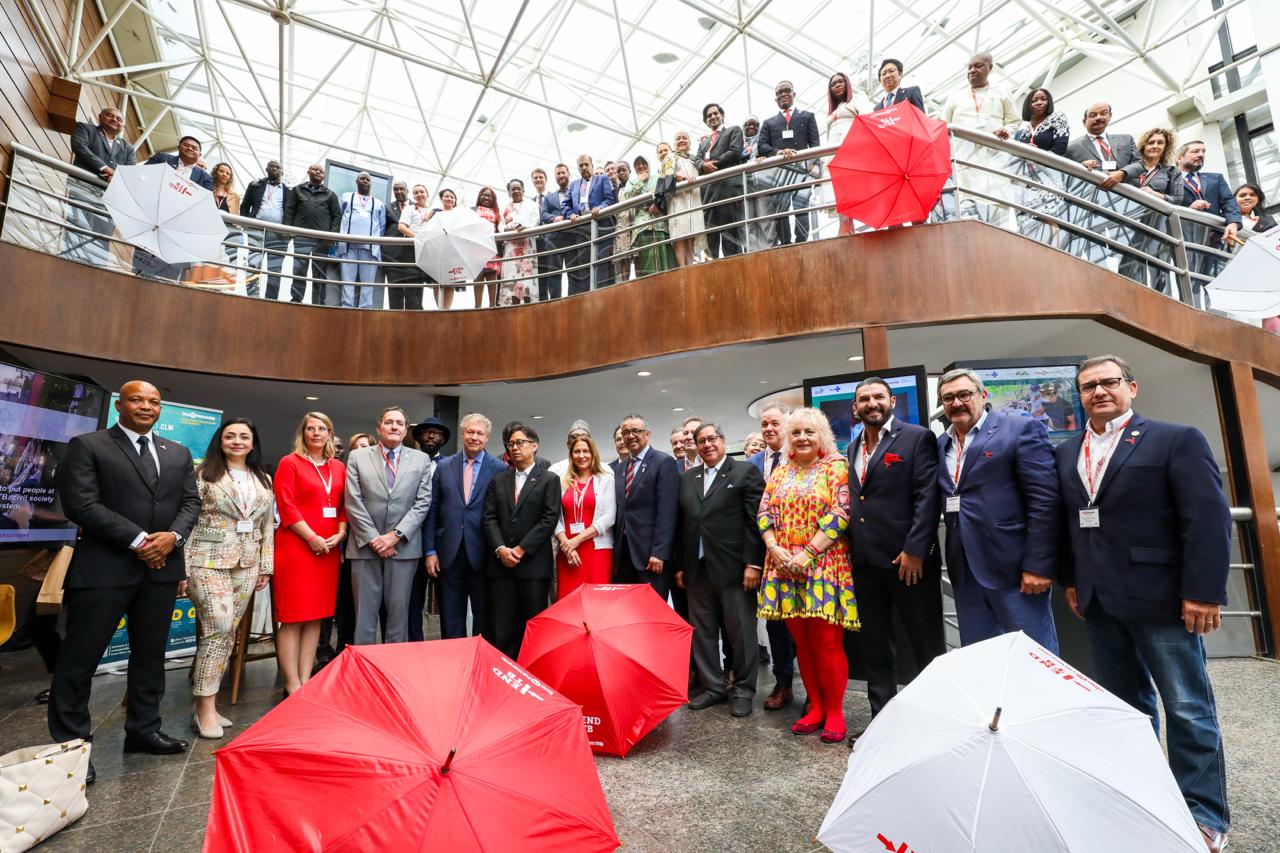
Brasília, 6 February, 2024 – The Director of the Pan American Health Organization (PAHO), Jarbas Barbosa, and the Director-General of the World Health Organization (WHO), Tedros Adhanom Ghebreyesus, attended the opening of the 37th Stop TB Partnership Council Meeting in Brasília, Brazil. Stop TB Partnership is a global coalition of partners dedicated to ending tuberculosis (TB) by 2030, bringing together expertise from a wide range of national, regional, and global partners.
In his remarks at the meeting's opening, the WHO Director-General emphasized that despite advances over the past 12 years, about 30% of the world's population has yet to benefit from TB control efforts such as timely diagnosis and treatment, primarily originating from poorer areas. Dr. Tedros also highlighted an important tool for advancing towards TB elimination: the development of a new vaccine.
"The pandemic has shown that with political and financial commitment, new vaccines can be developed rapidly," said the WHO Director-General, highlighting the significant role of BCG in protecting children and that the world needs a new vaccine to ensure better protection for adolescents and adults, who are more affected by the disease.
In January 2023, WHO established a TB Vaccine Accelerator Council to facilitate the licensing and use of new effective vaccines against tuberculosis, fostering high-level cooperation among funders, global agencies, governments, and end-users in identifying and overcoming barriers to TB vaccine development.
Program for the Elimination of Socially Determined Diseases
PAHO Director, Jarbas Barbosa, emphasized the fundamental importance of sustained involvement from all sectors of society and the need of addressing social determinants to end tuberculosis as a public health problem and achieve global disease elimination goals. In this regard, Dr. Barbosa highlighted the upcoming launch of a program aimed at the elimination of socially determined diseases, to be launched by the Brazilian government on Wednesday (07/02), with the involvement of 14 ministries.
"It is very innovative because it brings together many Ministries to address social determinants not only for TB but also for other socially determined diseases. I believe this Program will inspire other countries around the world to implement similar initiatives."
Ethel Maciel, Secretary of Health Surveillance and Environment at the Brazilian Ministry of Health stated that the country ranks among the countries with a high burden of TB globally, and the launch of the Program aligns with the commitment to change this reality.
"Together with WHO, I coordinated a study that identified that 48% of all people in Brazil with drug-susceptible tuberculosis were facing catastrophic costs (direct medical expenses, non-medical expenses, and indirect costs, such as income losses that amount to more than 20% of total family income). This clearly demonstrates how our populations are vulnerable, and therefore, we created a decree to work on an Interministerial Committee," highlighted the Secretary, referring to the Interministerial Committee for the Elimination of Tuberculosis and Other Socially Determined Diseases (CIEDDS), established in April 2023.
The launch of the "Healthy Brazil Program: Uniting for Care" is a follow-up to the actions of CIEDDS.
Socially determined diseases and infections are influenced by issues such as poverty, hunger, and social inequities, while also perpetuating these situations. This category includes diseases such as Tuberculosis, Leprosy, Malaria, Trachoma, Onchocerciasis, Schistosomiasis, Chagas Disease, among others.
A STOP TB Partnership
Founded in 2001, the Stop TB Partnership is a United Nations-based organization committed to addressing the needs and amplifying the voices of people, communities, and countries affected by tuberculosis.





